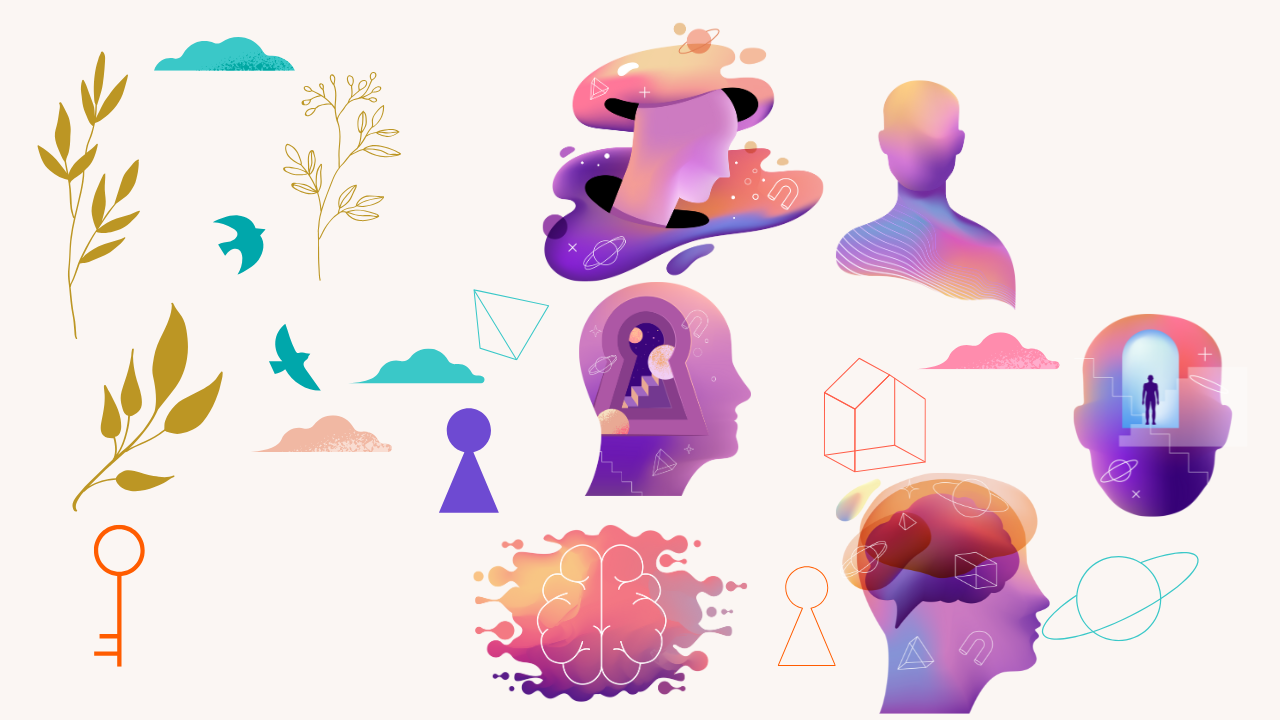Beyond Labels: Understanding ADHD Through a Whole-Person Lens

Insights from Dr. Brian Plante's recent 'Ask the Expert' Group Visit at TCLM
At TCLM, our 'Ask the Expert' Group Visits offer something unique in healthcare: the opportunity to dive deep into complex health topics with leading specialists in an intimate, interactive setting. Our recent session with Dr. Brian Plante, naturopathic doctor at the Amen Clinics, perfectly exemplified why these group visits are transforming how we approach neurodivergence and ADHD.
What Makes Our Approach Different?
Dr. Plante introduced our participants to the concept of "affirming brain care" – a paradigm that recognizes the innate humanity in how each person experiences and navigates the world. Rather than viewing ADHD as something that needs to be "fixed," this approach asks a fundamentally different question: What needs support, and what's already working well?
"From my perspective, affirming means recognizing the innate humanity underneath what's being experienced," Dr. Plante explained. "Just because somebody has differences in information processing, decision making, or behavioral preferences doesn't mean that necessarily has to be changed."
This philosophy shifts us away from trying to force everyone into a narrow definition of "normal" and instead focuses on supporting each individual so they can:
- Show up authentically in their relationships
- Maximize their experience of being alive
- Access embodied safety and choice
- Navigate life aligned with their values
The Whole-Body Connection: Why ADHD Isn't Just About the Brain
One of the most eye-opening aspects of Dr. Plante's presentation was his emphasis on how the brain doesn't exist in isolation. "The brain is the orchestrator and facilitator of everything else," he shared, "not a king or queen that controls everything, but really the sensor, perceiver, and responder."
This means that ADHD symptoms can be significantly influenced by:
Hormonal Changes
- Dropping testosterone levels affect dopamine production (our motivation neurotransmitter)
- Declining progesterone disrupts sleep through GABA receptor changes
- Hormonal transitions like menopause remove anti-inflammatory buffering around the brain
Sleep and Breathing Issues
Dr. Plante revealed a striking statistic: "80 to 90% or more of the people I see dealing with ADHD symptoms have some degree of upper airway dysfunction." Signs to watch for include:
- Snoring or mouth breathing
- Witnessed sleep apnea episodes
- Chronic nasal congestion or sinus issues
Environmental and Lifestyle Factors
- Chronic inflammation from infections or environmental toxins
- Poor nasal hygiene affecting brain function
- Hormone-disrupting chemicals in household products
The Seven Types of ADHD: Why One Size Doesn't Fit All
Through advanced brain imaging (SPECT scans), Dr. Plante and his colleagues at the Amen Clinics have identified seven distinct types of ADHD, each requiring different treatment approaches. A few of them mentioned are:
- Classic ADHD/ADD: Underactivity in the prefrontal cortex
- Over-focused ADD: Overactivity in limbic structures, leading to anxiety and difficulty shifting gears
- Temporal Lobe patterns: Affecting emotional regulation and memory
- Ring of Fire: Inflammatory patterns causing agitation and explosive behaviors
This is why the same medication or supplement that helps one person might make another person feel worse. Understanding your specific brain pattern allows for truly personalized treatment.
Treatment: Supporting Root Causes, Not Just Managing Symptoms
Dr. Plante's approach follows naturopathic principles of working with the body's innate healing capacity rather than against it. Treatment strategies are matched to brain patterns:
For Underactive Brain Patterns:
- Stimulating supplements like L-tyrosine, methylated B vitamins, creatine
- Red light therapy (cranial photobiomodulation)
- Hyperbaric oxygen therapy
- Prescription stimulants when appropriate
For Overactive/Inflammatory Patterns:
- High-dose omega-3 fatty acids
- Magnesium, lithium orotate, GABA
- Vagus nerve stimulation
- Treating underlying infections or toxin exposures
The Trauma Connection: When Sensitivity Meets an Unsupportive World
Dr. Plante highlighted an important reality for many neurodivergent individuals: "Any hypersensitive nervous system is more vulnerable to sensory stress, social stress, and the intensity of emotions because you're feeling everything louder."
For highly sensitive or neurodivergent individuals, experiences that wouldn't impact neurotypical people can be perceived as traumatic, leading to PTSD-like changes in brain wiring. This is why many late-diagnosed adults benefit from trauma-focused therapies like EMDR alongside other treatments.
Why Choose Group Visits for Complex Topics?
Our 'Ask the Expert' Group Visits at TCLM create a unique learning environment where:
- Participants can hear diverse perspectives and questions from others facing similar challenges
- Complex topics get the time and attention they deserve (rather than rushing through a standard appointment)
- Real-time Q&A allows for deeper exploration of individual concerns
- The group dynamic often sparks insights that wouldn't emerge in one-on-one sessions
As one participant noted during Dr. Plante's session, navigating neurodivergence as a parent or individual can feel overwhelming with so many different philosophies and approaches. Our group visits help demystify these complex topics while providing practical, actionable guidance.
Join Our Next 'Ask the Expert' Session
Dr. Plante's session exemplified our commitment to bringing cutting-edge, integrative perspectives directly to our TCLM community. Whether you're newly exploring neurodivergence, seeking alternatives to conventional approaches, or simply wanting to understand yourself or a loved one better, our group visits offer invaluable insights in a supportive environment.
"All models are wrong, some models are useful," Dr. Plante concluded, referencing a famous biostatistician. "We're operating with evolving models that can help alleviate suffering and help people feel more connected to themselves and each other."
Ready to explore new perspectives on health and healing? Contact TCLM to learn about our upcoming 'Ask the Expert' Group Visits and discover how this innovative format might transform your understanding of your own health journey.
Dr. Brian Plante is a naturopathic doctor at the Amen Clinics, specializing in integrative approaches to neurodivergence, functional medicine aspects of healing, and brain health. His affirming, whole-person approach has helped countless individuals and families navigate ADHD, autism, and related conditions with greater understanding and success.
